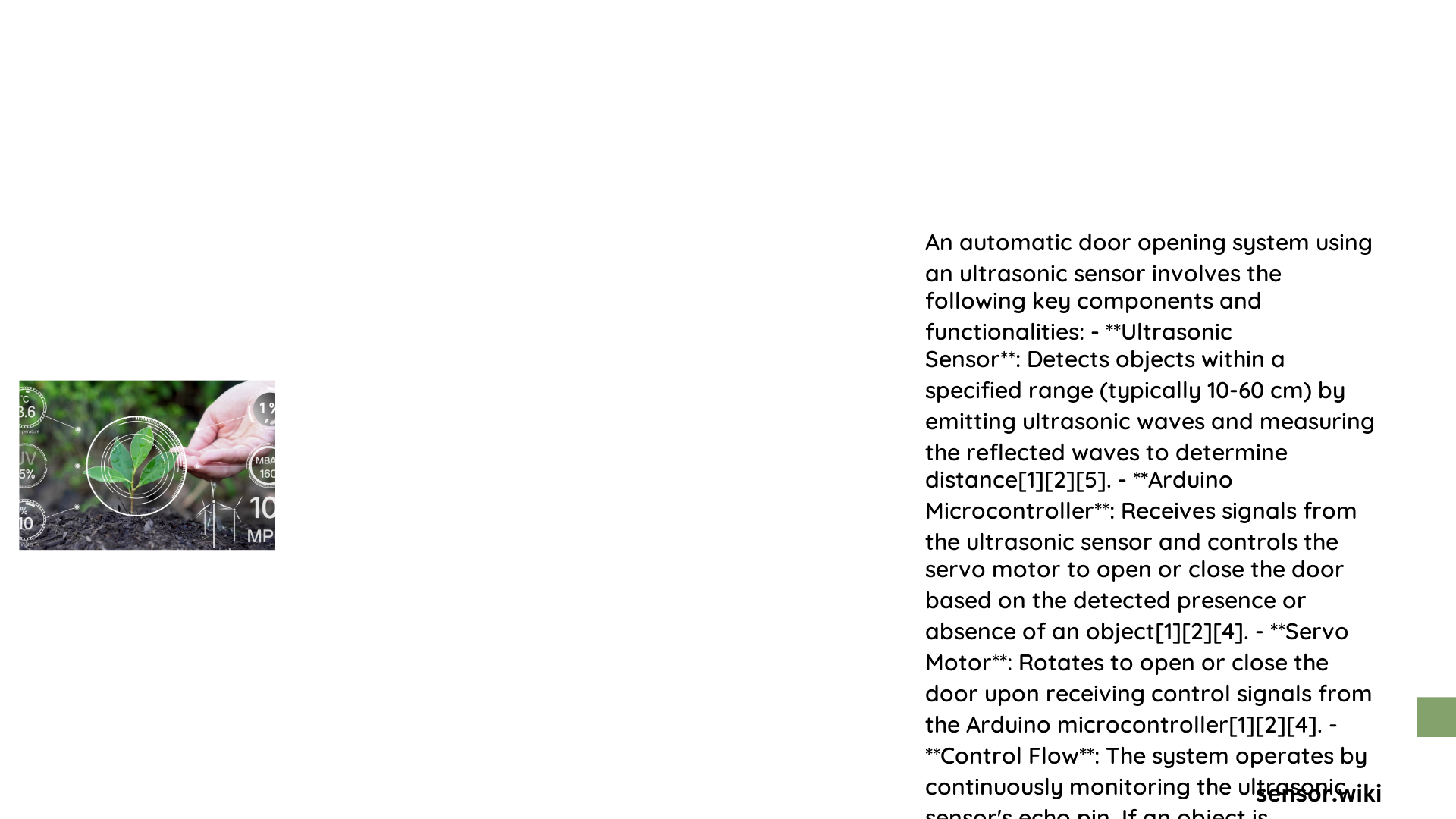An automatic door opening system using ultrasonic sensor represents a cutting-edge technological solution that transforms traditional entry mechanisms by leveraging advanced sensor technology. This innovative approach enables contactless door operation through precise distance measurement and intelligent object detection, providing enhanced accessibility, improved user experience, and potential applications across residential, commercial, and industrial environments.
What Makes Ultrasonic Sensors Ideal for Door Automation?
How Do Ultrasonic Sensors Detect Objects?
Ultrasonic sensors operate on a sophisticated principle of sound wave transmission and reception. These sensors emit high-frequency sound waves (typically around 40 kHz) that travel through the air and bounce back after encountering an object. By calculating the time taken for sound waves to return, the sensor can accurately determine the distance and presence of objects.
Key Detection Characteristics
- Detection Range: 2 cm to 4 meters
- Frequency: 40 kHz
- Accuracy: ±3 mm precision
- Response Time: Less than 100 milliseconds
What Components Are Required for Implementation?
Essential components for an automatic door opening system include:
| Component | Specification | Purpose |
|---|---|---|
| Ultrasonic Sensor | HC-SR04 | Object detection |
| Microcontroller | Arduino Uno | Signal processing |
| Motor | 12V DC Motor | Door mechanism |
| Motor Driver | L293D Shield | Motor control |
| Power Supply | 12V, 5A | System power |
What Are the Technical Programming Considerations?
void doorControlLogic() {
// Trigger ultrasonic sensor
digitalWrite(trigPin, LOW);
delayMicroseconds(2);
digitalWrite(trigPin, HIGH);
delayMicroseconds(10);
digitalWrite(trigPin, LOW);
// Calculate distance
long duration = pulseIn(echoPin, HIGH);
float distance = duration * 0.034 / 2;
// Conditional door operation
if (distance <= 50) {
openDoor();
delay(1000);
closeDoor();
}
}
How Does the System Ensure Reliable Performance?
Detection Reliability Factors
- Precise distance measurement
- Quick signal processing
- Robust motor control mechanism
- Adaptive threshold settings
- Minimal environmental interference
What Are the Cost Implications?
- Sensor Costs
- Ultrasonic sensors: $5 – $15 per unit
-
Additional components: $50 – $100
-
Installation Expenses
- Labor and setup: $100 – $500
-
Complexity-based variations
-
Maintenance Considerations
- Annual maintenance: $50 – $100
- Component replacement cycle: 5-10 years
What Are Potential Advanced Applications?
- Healthcare facilities
- Smart building access
- Industrial automation
- Accessibility solutions
- Touchless entry systems
Advantages of Ultrasonic Sensor Door Automation

- Non-contact object detection
- High precision measurements
- Wide detection range
- Cost-effective implementation
- Low power consumption
- Adaptable to various environments
Limitations and Considerations
- Potential interference from reflective surfaces
- Performance variations in extreme temperatures
- Dependency on proper sensor calibration
- Limited effectiveness in dusty or humid environments
Conclusion
An automatic door opening system using ultrasonic sensor represents a sophisticated technological solution that combines precision engineering with intelligent design. By leveraging advanced sensor technology, these systems offer enhanced accessibility, improved user experience, and potential applications across diverse sectors.
